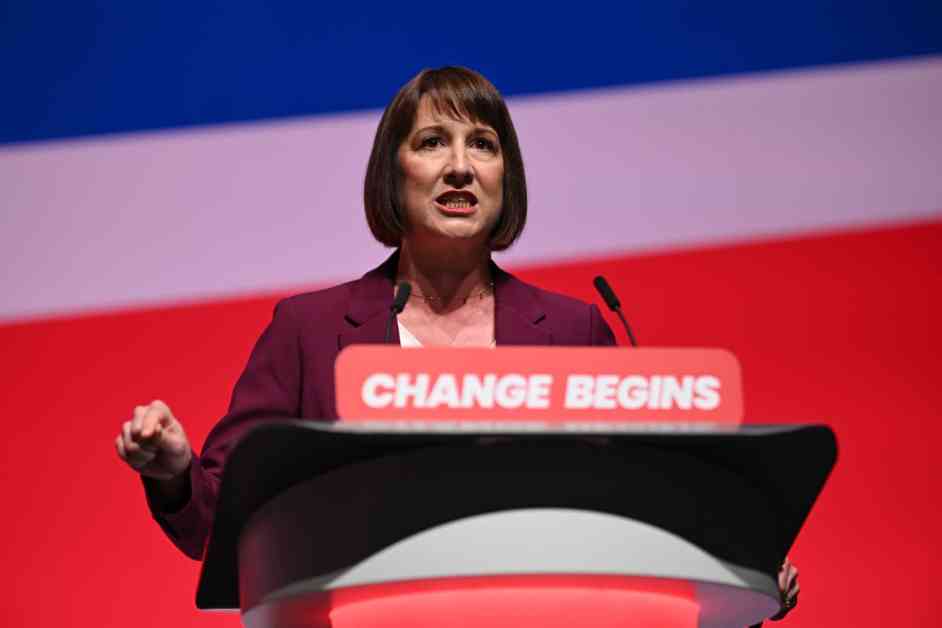Rachel Reeves Dismisses Accusations of Austerity Return at Labour Conference
During the recent Labour conference in Brighton, Chancellor Rachel Reeves adamantly refuted allegations of bringing back austerity measures reminiscent of the Conservative government’s harsh economic policies from the past decade. In her address to party members, Reeves assured that there would be “no return to austerity” under her leadership. This statement came in response to criticism from within the party, with some likening her approach to the austerity tactics employed by previous Conservative administrations.
Speaking passionately at the party’s first conference in power after a 14-year hiatus, Reeves emphasized the detrimental impact of Conservative austerity on public services, investment, and economic growth. She acknowledged the need to address the challenges left by the Tory legacy but affirmed that it would not diminish Labour’s vision and ambition for the country. Despite her reassurances, critics within Labour remained skeptical of Reeves’ economic strategy, expressing concerns over potential austerity-like measures being reintroduced.
Understanding Austerity and Its Historical Context
The concept of austerity gained prominence in the UK following the 2010 election victory of the Conservative government led by Prime Minister David Cameron and Chancellor George Osborne. This period marked a significant shift towards severe spending cuts and tax increases across various sectors, including welfare, healthcare, education, and public services. The austerity agenda was framed as a necessary response to address the national debt accumulated under the previous Labour administration, although experts argue that the 2008 economic crash played a more substantial role in the economic challenges faced by the country.
The austerity measures implemented by the Cameron-Osborne government were characterized by a reduction in public spending and a focus on fiscal discipline to curb government deficits. Despite the Conservative government’s claims of austerity’s success in restoring economic stability, critics pointed to the social consequences, including rising inequality, increased poverty levels, and strained public services. The impact of austerity policies was particularly felt by vulnerable populations, with a surge in food bank usage and social welfare cuts exacerbating hardship for many households.
In 2019, the Conservative government declared an end to austerity, signaling a shift towards increased spending across government departments. However, the legacy of a decade of austerity persisted, with public spending levels still below pre-austerity levels and ongoing challenges in addressing the long-term effects of budget cuts on essential services and societal well-being.
Evaluating Labour’s Economic Policies and Rebuttal to Austerity Claims
Despite facing accusations of reviving austerity-like measures, Rachel Reeves and the Labour government have maintained their commitment to a progressive economic agenda that prioritizes investment in public services and social welfare. Reeves’ assertion that there will be no return to austerity reflects Labour’s stance on addressing the consequences of past fiscal policies while pursuing a more equitable and sustainable economic approach.
Critics within the Labour party have raised concerns about the potential similarities between Reeves’ economic rhetoric and the austerity tactics of the past. However, Reeves and her team have emphasized key differences in their approach, citing increased public expenditure commitments in areas such as public sector pay rises, healthcare, and education. These investments aim to alleviate the impact of previous austerity measures and foster economic recovery through targeted spending initiatives.
Labour’s economic strategy also includes plans for state-led projects and initiatives aimed at promoting social welfare and public ownership. The proposed re-nationalization of railways and the establishment of a publicly-owned energy company demonstrate Labour’s emphasis on government intervention in key sectors to ensure public benefit and accountability. While critics may draw parallels between Labour’s policies and austerity measures, the party’s emphasis on social welfare, public investment, and progressive taxation sets it apart from the austerity agenda pursued by previous Conservative governments.
In conclusion, the debate surrounding Rachel Reeves’ economic approach and accusations of austerity revival highlight the complexity of economic policy in the UK. As Labour navigates the challenges of addressing past fiscal legacies while pursuing a transformative economic agenda, the party’s commitment to social justice and public investment remains central to its vision for a fairer and more inclusive society. By engaging in dialogue and debate on the implications of austerity and alternative economic strategies, policymakers and the public can work towards building a more resilient and equitable economy for all.












